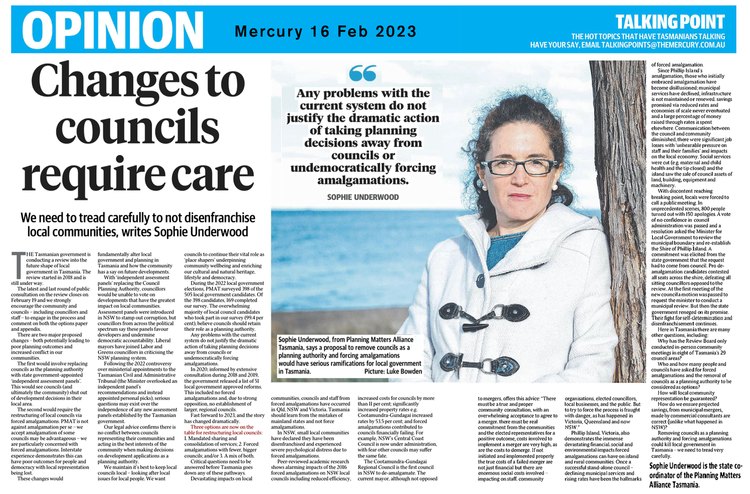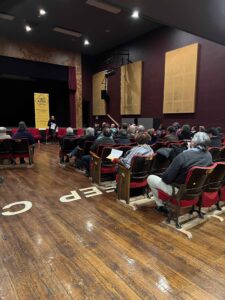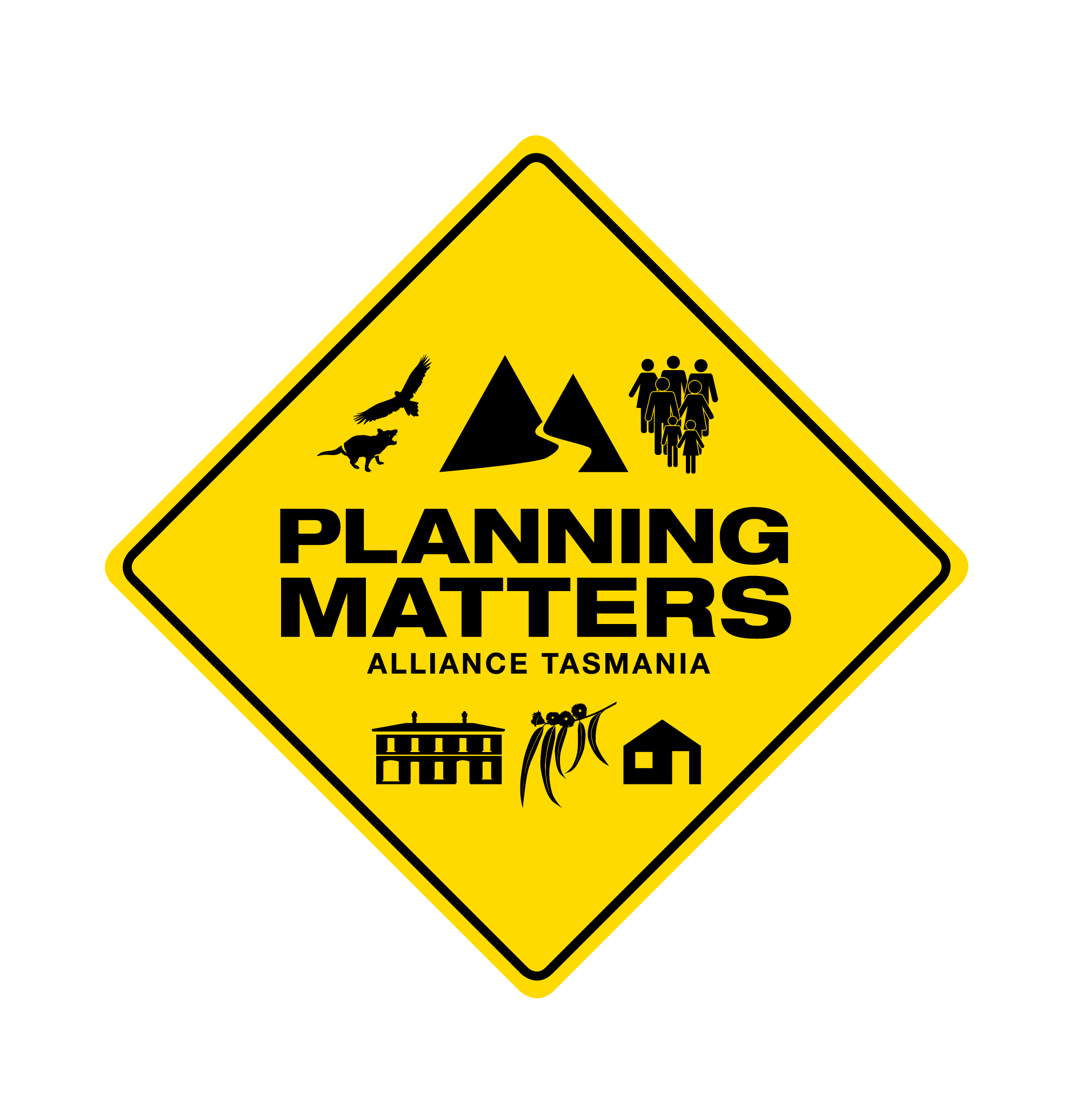- Talking Point
Talking Point: Changes to Councils Require Care
Media Enquiries
Sophie Underwood
PMAT State Director
sophie_underwood@hotmail.com
0407 501 999
Please share:
Published as a double page spread in The Mercury, Talking Point: Changes to Council Requires Care, 16 February 2023.
The Tasmanian Government is conducting a review into the future shape of Local Government in Tasmania. The review started in 2018 and is still underway.
The latest and last round of public consultation on the review closes on 19 February and we strongly encourage the community and Councils – including Councillors and staff, to engage in the process and comment on *both* the Options Paper and Appendix.
There are two MAJOR proposed changes: both potentially leading to poor planning outcomes and increased conflict in our communities.
The first, replacing Councils as the Planning Authority with State Government appointed ‘independent assessment panels’. This would see Councils (and ultimately the community) shut out of development decisions in their local area.
The second, is restructuring local Councils via forced amalgamations. PMAT is not against amalgamation per se – we accept amalgamation of some Councils may be advantageous – we are particularly concerned with forced amalgamations. Interstate experience demonstrates this can have poor outcomes for people and democracy with local representation being lost.
These changes would fundamentally alter Local Government and planning in Tasmania and how the community has a say on future developments.
With ‘independent assessment panels’ replacing the Council Planning Authority, Councillors would be unable to vote on developments that have the greatest impact on local communities. Assessment panels were introduced in NSW to stamp out corruption, but councillors from across the political spectrum say these panels favour developers and undermine democratic accountability. Liberal mayors have joined Labor and Greens councillors in criticising the NSW planning system.
Following the 2022 controversy over Ministerial appointments to the Tasmanian Civil and Administrative Tribunal (the Minister overlooked an independent panel’s recommendations and instead appointed personal picks), serious questions may exist over the independence of any new assessment panels established by the Tasmanian Government.
Our legal advice confirms there is no conflict between Councils representing their communities and acting in the best interests of the community when making decisions on development applications as a Planning Authority.
We maintain it’s best to keep local Councils local – looking after local issues for local people. We want Councils to continue their vital role as ‘place shapers’ underpinning community well-being and enriching our cultural and natural heritage, lifestyle and democracy.
During the 2022 Local Government elections PMAT surveyed 398 of the 505 Local Government candidates. Of the 398 candidates, 169 completed our survey. The overwhelming majority of local council candidates, who took part in our survey (99.4%), believe councils should retain their role as a Planning Authority.
Any problems with the current system do not justify the dramatic action of taking planning decisions away from councils or undemocratically forcing amalgamations.
In 2020, informed by extensive consultation during 2018 and 2019, the Government released a list of 51 Local Government approved reforms. This included no forced amalgamations and, due to strong opposition, no establishment of larger, regional councils.
Fast forward to 2023, and the story has changed dramatically.
Three options are now on the table for restructuring local Councils: 1) mandated sharing and consolidation of services; 2) forced amalgamations with fewer, bigger councils and/or 3) a mix of both.
Critical questions need to be answered before Tasmania goes down any of these pathways.
Devastating impacts on local communities, Councils and staff from forced amalgamations have occurred in QLD, NSW and Victoria. Tasmania should learn from the mistakes of mainland states and not force amalgamations.
In NSW, small local communities have declared they have been disenfranchised and experienced severe psychological distress due to forced amalgamations.
Peer-reviewed academic research shows alarming impacts of the 2016 forced amalgamations on NSW local Councils including reduced efficiency, increased costs for councils by over 11%; significantly increased property rates e.g. Cootamundra-Gundagai increased rates by 53.5%; and forced amalgamations contributed to councils financially failing. For example, NSW’s Central Coast Council is now under administration; with fear other Councils may suffer the same fate.
The Cootamundra-Gundagai Regional Council is the first Council in NSW to de-amalgamate. The current Mayor, although not opposed to mergers, offers this advice: ‘There must be a true and proper community consultation, with an overwhelming acceptance to agree to a merger, there must be real commitment from the communities and the elected representatives for a positive outcome, costs involved to implement a merger are very high, as are the costs to demerge. If not initiated and implemented properly the true costs of a failed merger are not just financial but there are enormous social costs involved impacting on staff, community organisations, elected councillors, local businesses, and the public. But to try and force the process is fraught with danger, as has happened in Victoria, Queensland and now NSW. ‘
Philip Island, Victoria, also demonstrates the immense devastating financial, social and environmental impacts forced amalgamations can have on island and rural communities. Once a successful stand-alone Council – declining municipal services and rising rates have been the hallmarks of forced amalgamation.
Since Philip Island’s amalgamation, those who initially embraced amalgamation have become disillusioned; municipal services have declined, infrastructure is not maintained or renewed, savings promised via reduced rates and economies of scale never eventuated and a large percentage of money raised through rates is spent elsewhere. Communication between the Council and community diminished, there were significant job losses with ‘unbearable pressure on staff and their families’ and impacts on the local economy. Social services were cut (e.g. maternal and child health and the tip closed) and the island saw the sale of Council assets of land, building, equipment and machinery.
With discontent reaching breaking point locals were forced to call a public meeting. In unprecedented scenes, 800 people turned out with 150 apologies. A vote of no confidence in Council administration was passed and a resolution asked the Minister for Local Government to review the municipal boundary and re-establish the Shire of Phillip Island. A commitment was elicited from the State Government that the request had to come from Council. Pro de-
amalgamation candidates contested all seats across the shire, defeating all sitting Councillors opposed to the review. At the first meeting of the new Council a motion was passed to request the Minister to conduct a municipal review. But then the State Government reneged on its promise. Their fight for self-determination and disenfranchisement continues.
Here in Tasmania there are many other questions, including:
Why has the Review Board only conducted in-person community meetings in eight of Tasmania’s 29 Council areas?
Who and how many people and councils have asked for forced amalgamations and the removal of Councils as a Planning Authority to be considered as options?
How will local community representation be guaranteed?
How do we ensure projected savings, from municipal mergers, made by commercial consultants are correct (unlike what happened in NSW)?
Removing councils as a Planning Authority and forcing amalgamations could kill Local Government in Tasmania – we need to tread very carefully.
Sophie Underwood is the State Coordinator of the Planning Matters Alliance Tasmania

Related News & Media

The Future of Local Government Review – PMAT Submission on the Final Report
The Future of Local Government Review – PMAT submission on the Final Report, October 2023

PMAT Media Release: Government Commitment on Council Mergers a Welcome Relief
Premier Jeremy Rockliff’s new commitment that no councils in Tasmania will be forced to amalgamate with their neighbours is a welcome development in a Local

PMAT Media Release: Local Government Reform for Discussion in Northwest Tasmania
Planning Matters Alliance are continuing the rollout of public community meetings to discuss mooted changes to local government, including forced amalgamations and the removal of

PMAT TCT Media Release: Future of Local Government Review
Planning Matters Alliance Tasmania and the Tasmanian Conservation Trust today called on the state government to respond to the recent Council submissions to the Future

Support Us
Receive News & Updates from PMAT
Stay informed on what’s happening locally and statewide within Tasmania, and join our community in advocating to protect Tasmania’s future.